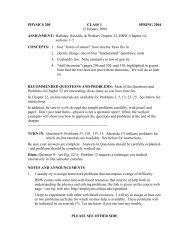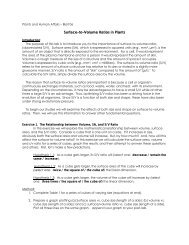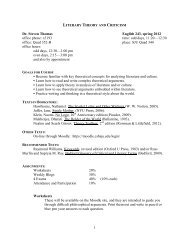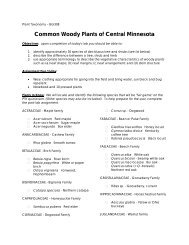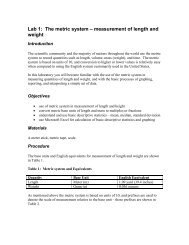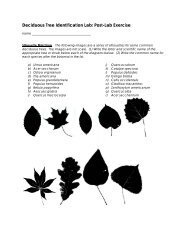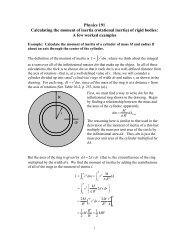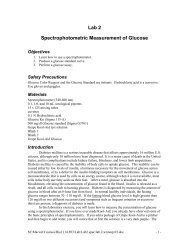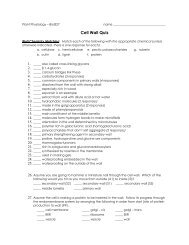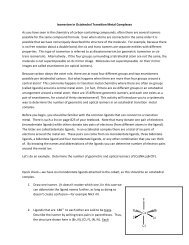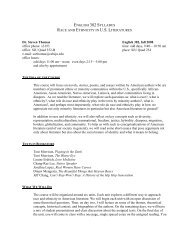Karl Marx Economic and Philosophical Manuscripts of 1844 Wages ...
Karl Marx Economic and Philosophical Manuscripts of 1844 Wages ...
Karl Marx Economic and Philosophical Manuscripts of 1844 Wages ...
Create successful ePaper yourself
Turn your PDF publications into a flip-book with our unique Google optimized e-Paper software.
3334the ordinary pr<strong>of</strong>its <strong>of</strong> farming stock in the neighborhood.This is evidently the smallest share with which the tenantcan content himself without being a loser, <strong>and</strong> the l<strong>and</strong>lordseldom means to leave him any more. Whatever part <strong>of</strong> theproduce, or, what is the same thing, whatever part <strong>of</strong> theprice is over <strong>and</strong> above this share, he naturally intends toreserve himself as the rent <strong>of</strong> his l<strong>and</strong>, which is evidentlythe highest the tenant can afford to pay in the actualcircumstances <strong>of</strong> the l<strong>and</strong>.... This portion... may still beconsidered as the natural rent <strong>of</strong> l<strong>and</strong>, or the rent for whichit is actually meant that l<strong>and</strong> should for the most part belet.” [Smith, I, p. 130-31]“The l<strong>and</strong>lords,” says Say, “operate a certain kind <strong>of</strong>monopoly against the tenants. The dem<strong>and</strong>s for theircommodity, which is l<strong>and</strong>, is capable <strong>of</strong> an infiniteexpansion; but the supply can only increase up to a certainpoint.... The agreement reached between l<strong>and</strong>lord <strong>and</strong>tenant is always as advantageous as possible to theformer.... Apart from the advantage which he derives fromthe nature <strong>of</strong> the case, he derives a further one from hisposition, his larger fortune, his credit <strong>and</strong> his st<strong>and</strong>ing; butthe first <strong>of</strong> these advantages is in itself enough to enablehim at all times to pr<strong>of</strong>it from the favorable circumstances<strong>of</strong> the l<strong>and</strong>. The opening <strong>of</strong> a canal or road <strong>and</strong> a growth inpopulation <strong>and</strong> prosperity in a canton always raise theprice <strong>of</strong> the rent.... What is more, even if the tenant makesimprovement on his plot <strong>of</strong> l<strong>and</strong> at his own expense, hecan only benefit from this capital for the duration <strong>of</strong> hislease; when his lease runs out, this capital remains in theh<strong>and</strong>s <strong>of</strong> the l<strong>and</strong>lord. From this moment on, it is the latterwho reaps the interest, even though it was not he whomade the original outlay; for now the rent is raisedproportionately.” [Say, II, pp. 142-3]“Rent, considered as the price paid for the use <strong>of</strong> l<strong>and</strong>, isnaturally the highest which the tenant can afford to pay inthe actual circumstances <strong>of</strong> the l<strong>and</strong>.” [Smith, I, p. 130]“The rent <strong>of</strong> an estate above ground commonly mounts towhat is supposed to be a third <strong>of</strong> the gross produce; <strong>and</strong> itis generally a rent certain <strong>and</strong> independent <strong>of</strong> theoccasional variations in the crop.” [Smith, I, p. 153]Rent “is seldom less than a fourth, <strong>and</strong> frequently more than athird <strong>of</strong> the whole produce.” [Smith, I, p. 325]Ground rent cannot be paid in the case <strong>of</strong> all commodities. Forexample, in many districts no rent is paid for stones.“Such parts only <strong>of</strong> the produce <strong>of</strong> l<strong>and</strong> can commonly bebrought to market <strong>of</strong> which the ordinary price is sufficientto replace the stock which must be employed in bringingthem thither, together with its ordinary pr<strong>of</strong>its. If theordinary price is more than this, the surplus part <strong>of</strong> it willnaturally go to the rent <strong>of</strong> the l<strong>and</strong>. If it is not more, thoughthe commodity may be brought to market, it can afford norent to the l<strong>and</strong>lord. Whether the price is or is not moredepends upon the dem<strong>and</strong>.” [Smith, I, p. 132]“Rent, it is to be observed, therefore, enters into thecomposition <strong>of</strong> the price <strong>of</strong> commodities in a different wayfrom wages <strong>and</strong> pr<strong>of</strong>it. High or low wages <strong>and</strong> pr<strong>of</strong>it arethe causes <strong>of</strong> high or low prices; high or low rent is theeffect <strong>of</strong> it.” [Smith, I, p. 132]Among the products which always yield a rent is food.“As men, like all other animals, naturally multiply inproportion the means <strong>of</strong> subsistence, food is always, moreor less, in dem<strong>and</strong>. It can always purchase or comm<strong>and</strong> agreater or smaller quantity <strong>of</strong> labor, <strong>and</strong> somebody canalways be found who is willing to do something in orderto obtain it. The quantity <strong>of</strong> labor, indeed, which it canpurchase is not always equal to what it could maintain, ifmanaged in the most economical manner, on account <strong>of</strong>the high wages which are sometimes given to labor. But itcan always purchase such a quantity <strong>of</strong> labor as it canmaintain, according to the rate at which that sort <strong>of</strong> labor iscommonly maintained in the neighborhood.“But l<strong>and</strong>, in almost any situation, produces a greaterquantity <strong>of</strong> food than what is sufficient to maintain all thelabor necessary for bringing it to market in the most liberalway in which that labor is ever maintained. The surplus,too, is always more than sufficient to replace the stock



